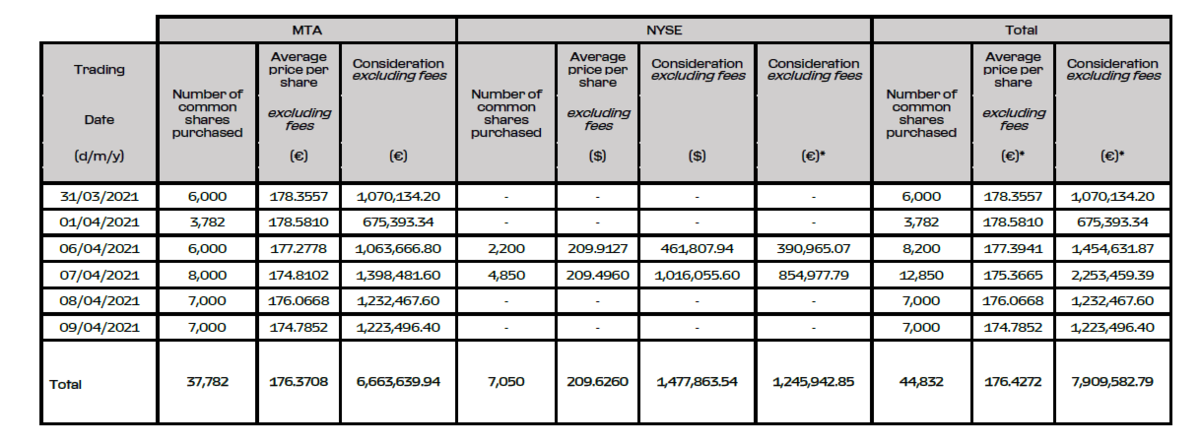Zenvo is Denmark’s only supercar maker. It currently hand-builds about five cars per year. The company doesn’t mess around, and its entry-level vehicle produces more than 1,100 horsepower. Zenvo’s founder told Insider about his plans to expand the brand globally and up production numbers. See more stories on Insider’s business page. The ultra-luxury supercar space… Continue reading Denmark’s Only Supercar Maker, Zenvo, Wants to Go Global – Business Insider
Tag: FCA
Ferrari’s CEO promises an EV in 2025
Ferrari has already made cars with hybrid powertrains, but during its Annual General Meeting this week, acting CEO John Elkann told investors in prepared remarks (PDF) that the carmaker will unveil “the first all-electric Ferrari” in 2025. Hopefully that plan will hold even after the company confirms a new CEO — over the past decade… Continue reading Ferrari’s CEO promises an EV in 2025
Stellantis CEO commits Jeep, Ram pickup-maker to big EV targets
The CEO of Stellantis, maker of Jeep SUVs and Ram pickups, told the company’s shareholders Thursday to expect a major boost in the number of pure battery-electric vehicle models it offers and in the percentage of low-emission vehicles it sells over the next nine years. Carlos Tavares, who leads the company that resulted from the… Continue reading Stellantis CEO commits Jeep, Ram pickup-maker to big EV targets
@Groupe PSA: PR Results of Stellantis’ 2021 Annual General Meeting001560
Amsterdam – Stellantis N.V. (NYSE / MTA / Euronext Paris: STLA) (“Stellantis”) announces that at the Annual General Meeting of Shareholders (AGM) held virtually today and broadcast live via Stellantis’ website all resolutions proposed to shareholders were adopted, including the proposal to approve a EUR 1 billion extraordinary cash distribution on common shares, as contemplated… Continue reading @Groupe PSA: PR Results of Stellantis’ 2021 Annual General Meeting001560
@FCA: Results of Stellantis’ 2021 Annual General Meeting
Results of Stellantis’ 2021 Annual General Meeting Amsterdam, April 15, 2021 – Stellantis N.V. (NYSE / MTA / Euronext Paris: STLA) (“Stellantis”) announces that at the Annual General Meeting of Shareholders (AGM) held virtually today and broadcast live via Stellantis’ website all resolutions proposed to shareholders were adopted, including the proposal to approve a EUR… Continue reading @FCA: Results of Stellantis’ 2021 Annual General Meeting
@Ferrari: Ferrari announces voting results from its Annual General Meeting000092
Maranello (Italy), 15 April 2021 – Ferrari N.V. (“Ferrari” or the “Company”) (NYSE/MTA: RACE) announced today that all resolutions proposed to Shareholders at the Ferrari’s Annual General Meeting of Shareholders (the “AGM”) held today virtually were passed. The Shareholders approved the 2020 Annual Accounts, expressed a positive advice with respect to the Remuneration Report 2020… Continue reading @Ferrari: Ferrari announces voting results from its Annual General Meeting000092
@niche: 13,000 International Reservations for the SEV Sion000762
Sono Motors is on a mission to enable a revolutionary mobility system, where every electric vehicle is solar, shared, and independent from fossil-fuels. Today, an experienced specialist team is developing a forward-looking electric car that is suitable for daily use, the Sion. Both the Sion’s integrated solar technology and innovative mobility services will enable users… Continue reading @niche: 13,000 International Reservations for the SEV Sion000762
@Ferrari: Ferrari N.V.: periodic report on the buyback program000090
Maranello (Italy), April 12, 2021 – Ferrari N.V. (NYSE/MTA: RACE) (“Ferrari” or the “Company”) informs that the Company has purchased, under the fourth tranche of the common share buyback program announced on March 11, 2021 (“Fourth Tranche”), additional common shares – reported in aggregate form, on a daily basis – on the Italian Stock Exchange… Continue reading @Ferrari: Ferrari N.V.: periodic report on the buyback program000090
Meet the Waymo power players who will replace John Krafcik as the co-CEOs of Google’s $30 billion self-driving unit
Waymo’s former COO, Tekedra Mawakana and former CTO, Dmitri Dolgov, are its new co-CEOs. Mawakana is a policy expert who’s led Waymo’s strategy, operations, marketing, and public affairs. Dolgov is in charge of developing the company’s software and hardware. See more stories on Insider’s business page. After longtime Waymo CEO John Krafcik decided to step… Continue reading Meet the Waymo power players who will replace John Krafcik as the co-CEOs of Google’s $30 billion self-driving unit
Serious Fraud Office conducts raids over scheme by Buy2Let Cars owner
The Serious Fraud Office has made an arrest and raided two residential premises as part of an investigation into a company that operated a hire car investment scheme. The SFO is investigating the activities of Raedex Consortium, which runs a string of companies including Buy2Let Cars, PayGo Cars, Wheels4Sure and Rent2Own Cars. The SFO, which… Continue reading Serious Fraud Office conducts raids over scheme by Buy2Let Cars owner
